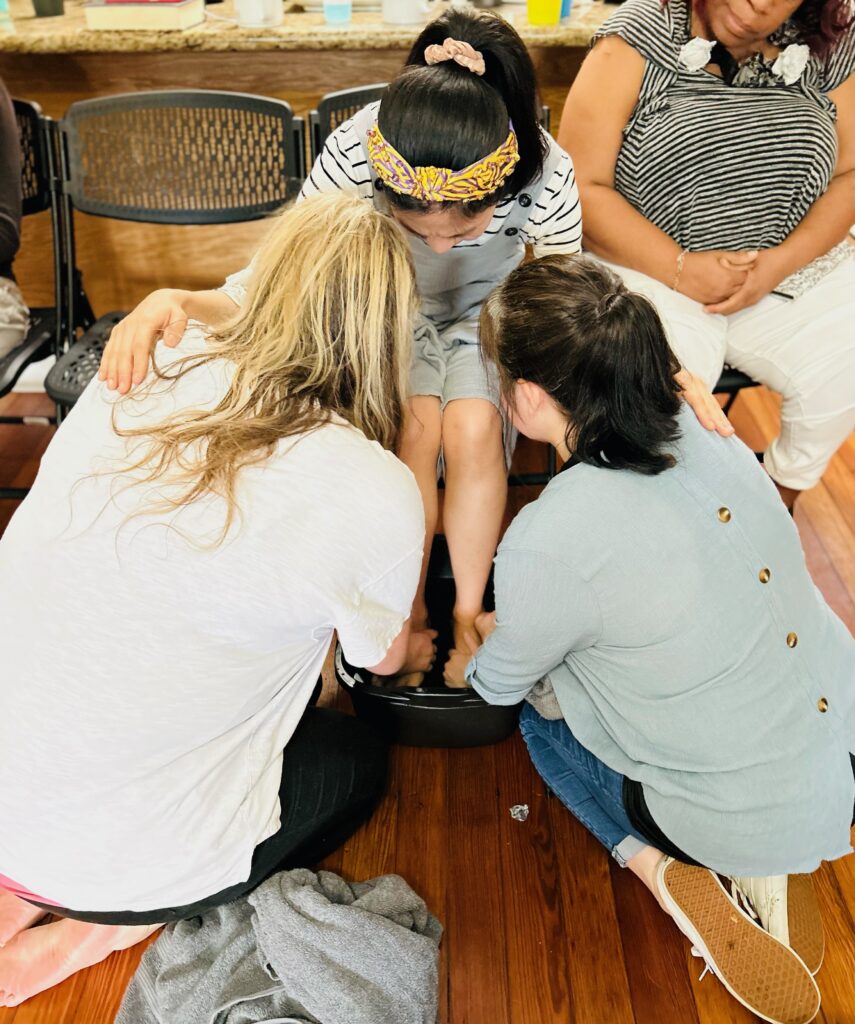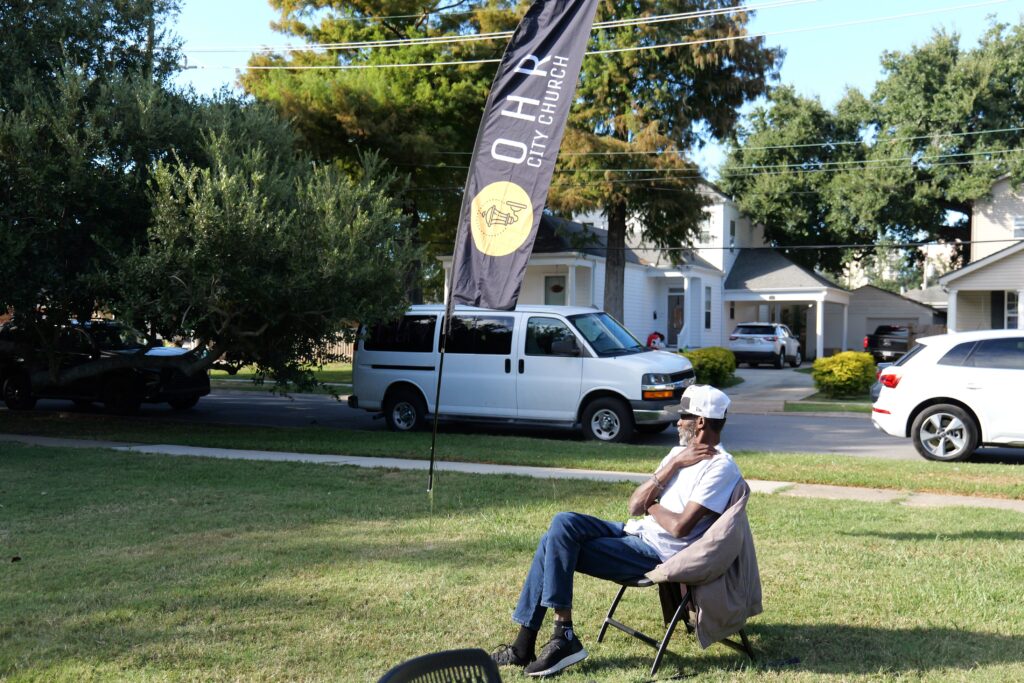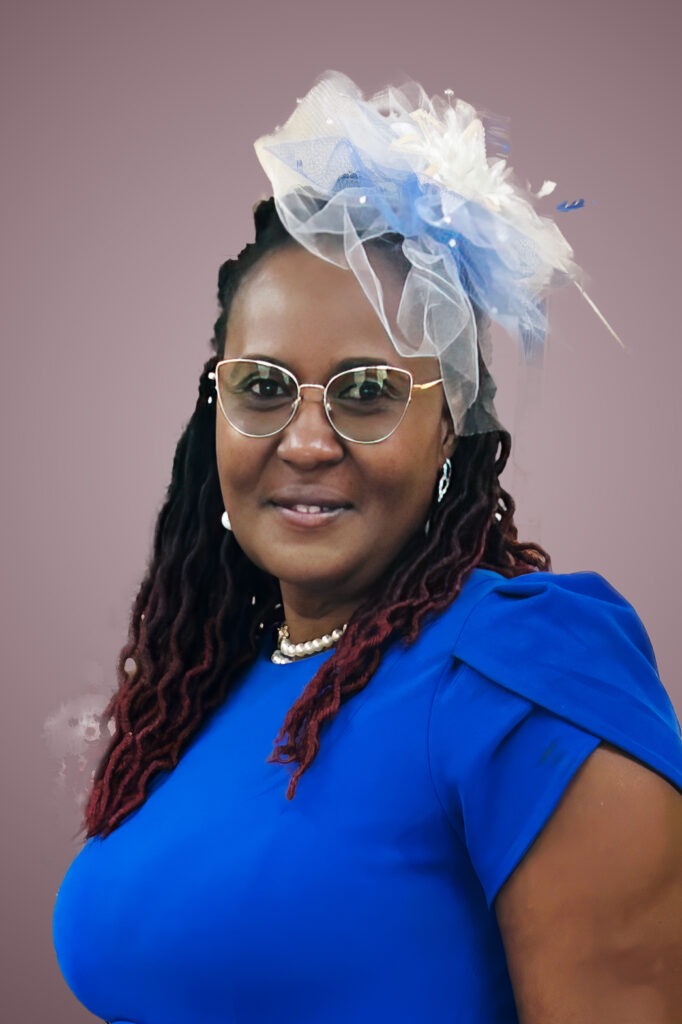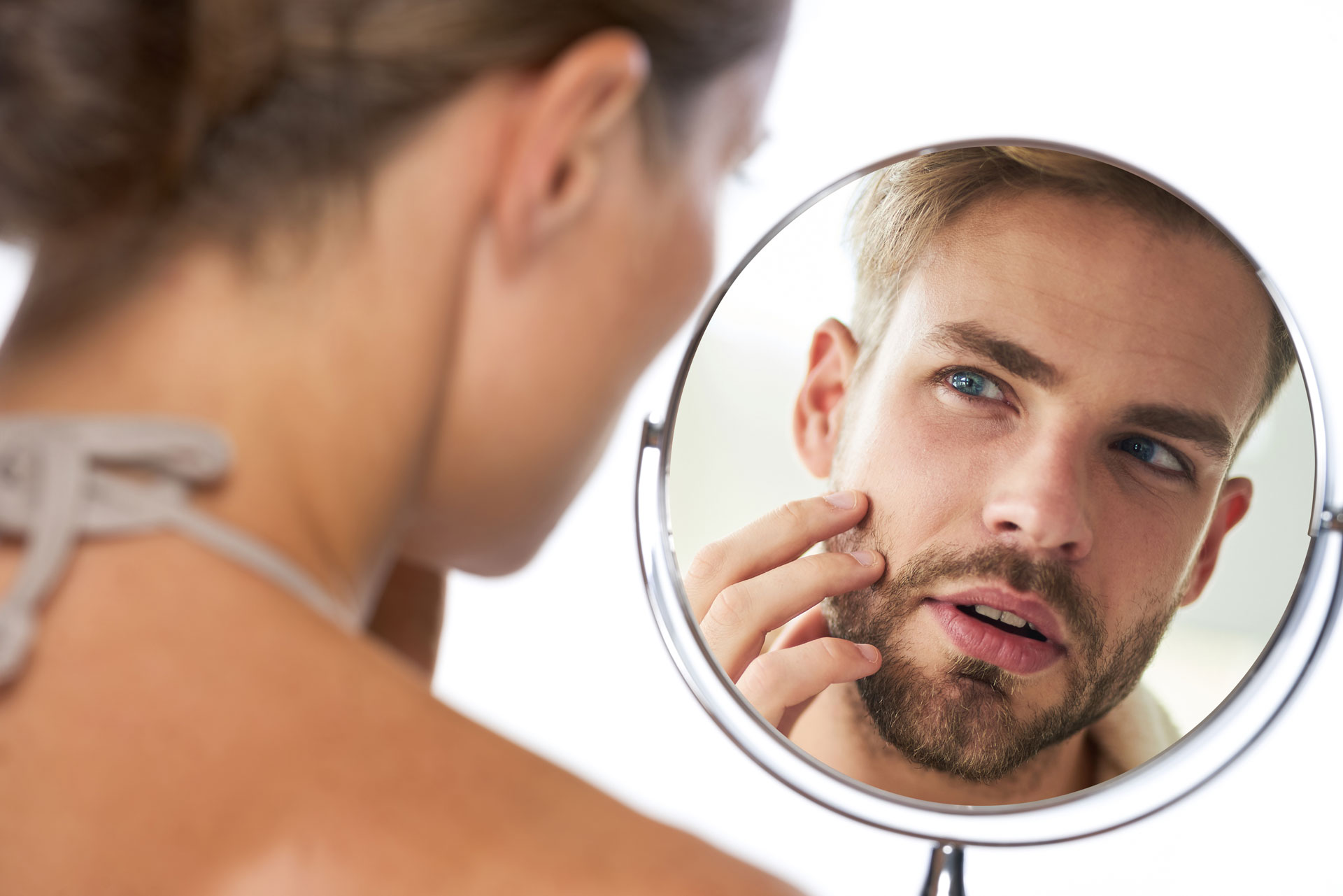Featured Articles
Tale as Old as Time: The Truth About Transgenderism
Published
5 years agoon

By Lisa*
My 37-year-old married brother with five children under the age of nine sent me an email a few months ago announcing his plans to become a woman. His wife is encouraging him to transition.
Gender dysphoria used to be right next to schizophrenia in the DSM-V (the diagnostic manual used by psychiatrists). This makes a lot of sense given that my brother is currently claiming a woman lives inside his body. In order to let her out, he must not only wear dresses, heels, and makeup, he must also begin taking female hormones to transform his body into that of a female.
True Self
What troubles me even more than my brother’s decline in mental health is that countless people around him have decided to simply “love and support” him on his “journey.” If he were claiming that he believed an alien or a time traveler lived inside his body, they might not be so supportive. But because it is 2019 and the denial of reality when it comes to gender is culturally en vogue, people are going along with it. They’re terrified of being called intolerant. They say things like, “If he tells us that she is his ‘true self,’ who are we to argue?”
Ah yes . . . the “true self,” a mantra of a generation. No matter where you go, you can’t escape it. Books, television shows, Instagram captions, and Internet memes suggest we can all attain greater levels of health and peace through a deeper realization and expression of our “true self.”
Back in the day there was something called moral realism, a worldview that put an emphasis on human sin and weakness. Biblical figures like David and Moses were seen as great leaders who were also deeply flawed. Augustine and the early church fathers talked about the depravity of sin and the need for grace. Then around the 18th century moral realism found its rival in moral romanticism. Romantics like Jean-Jacques Rousseau started talking about the inherent goodness of man.
Fast forward to 1946 when Rabbi Liebman published his book Peace of Mind. The book urged people toward a new morality based on the idea that you should never repress any part of yourself as sinful. Instead you should “love yourself” and be unafraid of your hidden impulses. The book became a New York Times best seller for 58 weeks. Humanist psychologists ran with it, arguing that the primary problem for humans was no longer sin, but rather the fact that we weren’t accepting ourselves exactly as God made us. This line of thinking led to the advent of the self-esteem movement in 1969. The core of that movement morphed into what author Charles Taylor calls “the culture of authenticity.”
The central belief of the culture of authenticity is this:
At the center of every one of us is a Golden Figure known as “the true self.” The true self can always be trusted. You know that what you’re doing is right when you feel an inner peace (or shalom) inside your true self. You know what you’re doing is wrong if you do not feel that peace.
Because the true self is inherently good, there is no sin to be found in it. Sin is now found only in the external structures of society that seek to repress the true self.
In his book The Road to Character, David Brooks explains that older generations believed the development of character came by struggling against the desires of the true self. Traits like selflessness and self-sacrifice were considered most admirable. Younger generations, in contrast, believe the most admirable trait to be radical self-expression.

Thus, the steps to the “new salvation” being promoted by younger generations include
- relinquishing any previous struggle you had against your true self,
- letting your true self fully emerge without guilt or shame (both of which are constructs of old, outdated religious systems),
- adopting a new vocabulary in which words like “sin” and “evil” now refer to the external structures of society that caused you to doubt your true self in the first place. (The new “evils” are organized religion and any system of thought that seeks to oppress the weak or marginalized, such as poverty, racism, misogyny, or anything that’s anti-LGBTQ.)
Yet 19th century British philosopher John Stuart Mill said the point of life was to struggle every day to “sacrifice the true self on the altar of care and concern for others.” This is done by achieving a series of small, inner victories against our own desires because you know that acting upon them could result in negative consequences for others. Even if acting on our impulses doesn’t feel like it’s doing any harm in the moment, it could be adversely affecting countless generations to come. Thus, we build character by a thousand selfless acts of restraint that no one ever sees.
But in 21st century America, this line of thinking doesn’t compute. We don’t applaud people for restraint; we applaud people for throwing off restraint. Hence the hundreds of Instagram followers now giving my brother a “heart” for announcing he’s a woman.
The logical problem with this is that if a man is to be “supported and celebrated” as he embarks on his journey to become a woman, shouldn’t everyone be celebrated as they continue down the path toward their true self? Shouldn’t the married woman be encouraged when she reconnects with her true self in the arms of another man? Our culture would say yes, and books written about this have become best sellers.
If we do away with the concept of a sin nature and concede that everyone is inherently good, there is really no impulse that needs to be fought against. Ever. The porn addict may as well explore his addiction. The alcoholic and heroin user too. And what about the pedophile? What do we do with the man who says his true self has been attracted to small children from the time he hit puberty?
My brother and sister-in-law would agree that we shouldn’t condone any behavior that would “cause harm to others.” They’d argue that the trans person is not harming anyone by switching genders. So let’s consider that argument. Would my brother, who has been a man for more than three decades, suddenly becoming a woman really not be harmful to anyone?
I suppose that depends on your definition of harmful. Is it harmful to disrupt the mental, emotional, and physical health of everyone in your family, both immediate and extended, for months and likely years to come? Is it harmful to raise five small children in a state of psychological confusion in which the person that they thought was one thing is now another, one in which their parents morph from a heterosexual couple to a homosexual couple right before their eyes? Is it harmful for a husband who promised to love and cherish his female wife to abandon all responsibilities as the man she thought she married? Is it harmful for a father of five to commit a slow form of suicide as he begins to disappear and a new creature (complete with a different name) takes his place?
My tall, handsome, muscular brother began taking strong female hormones that transformed him into a different person. His facial hair stopped growing. He grew breasts instead. As part of his “social transition” he began wearing dresses, wigs, heels, and makeup in public. He will have to stay on female hormones until the day he dies. He refuses to answer to his former name, Josh. He says Josh is dead. There was even some type of symbolic “burial ceremony” to say goodbye to Josh once and for all. Unfortunately, I didn’t get invited to that. Nor did my parents. No one sent us flowers. No one dropped off a casserole.
The best way to describe what happens when a loved one decides to swap genders is this: it’s as though someone murders your loved one, and then the murderer gets extremely angry if you won’t let them take the victim’s place in your family.
And if we really believe that supporting people on their journey to their “true self” is best, what do you suppose our society is going to look like a decade from now?
Well, the number of “otherkin” (people who identify themselves as half-human, half other species) is growing. A man named John who identifies himself as a fox is now requesting special legal rights that will accommodate his needs as an animal. Surprisingly (or maybe not so surprisingly), a significant percentage of “otherkin” also identify as transgender. Thus, the argument is easily made that if you support transgender rights, you have to support otherkin rights. After all, who are we to say what someone’s true self might really be? And just like transgender individuals, many otherkin are now having surgery to look more and more like the animal or entity they identify with.
If you can legally change the biological sex on your driver’s license, logic says you must be allowed to legally change any other trait you like because YOU and you alone know your true identity. This is how we end up with Martina Big and Michael Eurwen from Germany. The couple has undergone many rounds of Melanotan injections, a synthetic hormone that makes the skin darker. Why? Because although reality would tell us that they are both Caucasian, they personally identify as being African.
If you Google Martina Big, you will notice she does not appear to be well. Apart from Martina’s attempts to become black, she has also had 23 breast implants (she’s now a size 32 S). Should people continue going along with Martina’s delusions because only she can know her true self? Or should people try to get Martina the mental health help she obviously needs? I ask the same question of those in my brother’s circle of friends.
Profiting from Transgenderism
Instead of helping him get real help, people continue to “support him” as he moves deeper into his delusion. This includes many well-meaning therapists. But why would a therapist tell a man who has had a history of cross-dressing to take that compulsion to its furthest extreme by transforming his body into that of a woman? Because there’s big money driving trans medicine.
After trans medical research concluded in Europe in the early 2000s, doctors from those clinics flooded into the U.S. knowing they could make a financial killing by peddling a new “treatment” for the psychiatric problem of gender dysphoria. (If you haven’t studied the history of trans medicine, Google Paul McHugh, the doctor from Johns Hopkins who was in charge of the first sex reassignment surgery program in the U.S.).
Once you study the history of trans medicine, you’ll discover that any dissenters of the practice were systematically silenced. This includes respected Ivy League professors and doctors like McHugh, who said that going along with a patient’s delusion was far more harmful than helpful. What began as two clinics (one on either coast) that recommended people with gender dysphoria move further into their fantasies by taking cross-sex hormones has now expanded into 50 clinics across the U.S., all of which are collecting massive insurance payouts.
Read Part 2 of this article here.
*The author of this true account, a wife and mother, wishes to remain anonymous. Names in this account have been changed.
Featured Articles
A Costly “Yes”: Church Planting in the Murder Capital of America
Published
2 months agoon
September 1, 2024By
Cala Dickey
Church planting isn’t for the faint of heart. All church plants require faith, but it takes a special kind of crazy to “parachute plant,” where church planters “parachute” into a new place, starting from nothing with few resources or contacts. After seven years of pouring our hearts and souls into CityLife Church, a parachute church plant in Wilmington, North Carolina, my husband Mike and I were pretty certain God was calling us to do something different. We genuinely believed God was calling us into missions. In hindsight, I guess He was – just not in the way we pictured it.
This time, our “yes” led us into what was at that time the murder capital of America.
Neither one of us had a desire to plant another church, but the thought of doing something new was exciting to us. So, towards the end of our tenure at CityLife, we let the stirring of something new brew within us even though we had no idea what was coming.
During this season, a couple of things happened that God used to speak to our hearts. The Vanartsdalens, close friends of ours at CityLife, came to us with the news that they were moving to help plant another church within Open Bible (read more about their story HERE). As we celebrated what God was doing with our friends, it reignited a feeling within us that we had forgotten. (Never underestimate how your “yes” might affect someone else’s!) That feeling was the excitement and spiritual rush that comes with church planting. Neither Mike nor I expected to feel this again, and we were surprised to find the desire in our hearts to plant another church.

Everything changed after a conversation with our Open Bible Regional Director, Nathan Hagan. When we shared our initial desire with him, he began to brainstorm some different options for us to consider. One idea jumped out to both of us: “If you guys were interested in planting another church in the region, maybe it could be someplace like New Orleans.” Nathan mentioned other places, but the only one we remembered is the one that stuck to our hearts like glue. New Orleans: the word was spoken, and the Spirit responded!
Mike and I decided early on in our marriage that whatever God called us to do, we would say yes. This time, our “yes” led us into what was at that time the murder capital of America: New Orleans, Louisiana. It is extremely hard to uproot your family and your life and move hundreds of miles away to a place where there are no family, friends, or security. Despite these challenges, we sold many of our possessions, took what we could in a truck and trailer, and headed off into the unknown!
As soon as we put boots on the ground, we quickly realized that this city, this plant, and this call would be different from anything we had ever done. Almost immediately after moving, we were met with a triple homicide four houses down from ours, I was violently robbed at gunpoint, and our kids had a gun pulled on them while playing outside in our neighborhood. We faced circumstances that most people assumed we would run from, but when you know the Lord has called you to a land, you must trust that He will protect and prosper you in that land. Suffering is part of the calling; if we aren’t willing to suffer for the calling, we won’t partake of its full blessing. “But rejoice inasmuch as you participate in the sufferings of Christ, so that you may be overjoyed when his glory is revealed” (1 Peter 4:13).

To rewind just a bit, when we knew for sure that we were moving, Mike sat our kids down and had them help compile a dream/prayer list of people we’d love to have on our team. Some on the list were Spirit-led, some were hopefuls, but all of them were people we thought might be crazy enough to consider moving with us!
Back before we’d moved to North Carolina for our first church plant, we had told our friends Greg and Tina that we felt they were supposed to come with us. I think Greg laughed at Mike when we first shared this, but they are now the pastors at CityLife! In similar fashion, we had another friend couple in Ohio that we video chatted with as we prepared to plant in New Orleans. We shared the news of where we were moving then asked them to pray about joining us. They agreed to pray, but I’m certain they thought we were crazy!
We faced circumstances that most people assumed we would run from, but when you know the Lord has called you to a land, you must trust that He will protect and prosper you in that land.
It’s amazing to see how God works in lives, stirring people’s hearts to be part of things that take an incredible amount of faith. Here we are two years later, and Pastor Eric and Lindsay Baker are in New Orleans with us putting their hands to the plow! They moved from a one-light farm town to one of the wildest cities in the world. They and their seven kids gave their “yes” to the Lord, leaving everything they had ever known. They have had their car stolen twice, and yet here they remain. In addition to the Bakers, God sent us another person from our dream list without us even having to ask; Mike’s mom, Lynne, joined the team and lives right next door to us now!
Fast forward to present day: we are so excited to see what God is doing at OHR City Church! “Ohr” is the Hebrew word for “light,” and it also means “to bring order amid chaos” (so fitting for this city!). Almost nothing has gone how we thought it would here, yet we believe everything is going exactly how God designed it.

We are currently meeting every Sunday night in our house where we eat, worship, dream, pray, and study the word of God together. While the adults meet in our house, the kids go to Momma Lynne’s house next door! Our team is growing, and we are all becoming a family. None of us knows exactly where the Lord is taking us yet, but everyone is on board to find out!
If you feel God calling you to something, I encourage you to step out in faith and give God your “yes”!
*Want to read more from Mike and Cala Dickey? Read their related article: Five Ways to Support Church Planting
About the Author

Cala Dickey
Mike and Cala Dickey are the lead pastors at the Southeast Region of Open Bible’s newest church plant, OHR City Church, in New Orleans, Louisiana. Before heading down to the bayou, Mike and Cala planted CityLife Church in Wilmington, North Carolina. They are passionate about pioneering and planting churches in areas that desperately need Jesus. The Dickey family is excited for what God is doing through OHR City Church in New Orleans! To learn more, visit Ohrcc.com.
Featured Articles
Un «Sí» costoso: Plantar una iglesia en la capital del asesinato en Estados Unidos
Published
2 months agoon
September 1, 2024By
Cala Dickey
La plantación de iglesias no es tarea fácil. Toda plantación de iglesias requiere fe, pero la «plantación en paracaídas», en la que los plantadores «saltan en paracaídas» a un lugar nuevo, partiendo de la nada y con pocos recursos o contactos, requiere un tipo especial de locura. Después de siete años de derramar nuestros corazones y almas en CityLife Church, una iglesia plantada en paracaídas en Wilmington, Carolina del Norte, mi esposo Mike y yo estábamos convencidos de que Dios nos estaba llamando a hacer algo diferente. Honestamente, creíamos que nos llamaba a las misiones. En retrospectiva, creo que lo estaba haciendo, sólo que no de la manera en que lo imaginábamos.
Esta vez, nuestro «sí» nos llevó a lo que en ese momento era la capital del asesinato de los Estados Unidos
Ninguno de los dos deseaba plantar otra iglesia, pero la idea de hacer algo nuevo nos entusiasmaba. Así que, casi al final de nuestro período en CityLife, dejamos que la emoción de algo nuevo se gestara dentro de nosotros, aunque no teníamos ni idea de lo que se avecinaba.
Durante ese tiempo, sucedieron un par de cosas que Dios usó para hablar a nuestros corazones. La familia Vanartsdalen, amigos cercanos de CityLife, nos comunicaron que se mudarían para ayudar a plantar otra iglesia con la Biblia Abierta (lea más sobre su historia aquí). Mientras celebrábamos lo que Dios estaba haciendo con nuestros amigos, se reavivó dentro de nosotros un sentimiento que habíamos olvidado. (¡Nunca subestimes cómo tu «sí» puede afectar al de otra persona!). Esa sensación era la emoción y la urgencia espiritual que viene con la plantación de iglesias. Ni Mike ni yo esperábamos volver a sentir esto, y nos sorprendió descubrir el deseo en nuestros corazones de plantar otra iglesia.

Después de una conversación con nuestro director regional de la Biblia Abierta, Nathan Hagan, todo cambió. Cuando le contamos nuestro deseo inicial, comenzó a pensar en algunas opciones diferentes para que las consideráramos. A ambos nos sorprendió esta idea: «Si ustedes estuvieran interesados en plantar otra iglesia en la región, tal vez podría ser en algún lugar como Nueva Orleans». Aunque Nathan mencionó otros lugares, el único que recordamos es el que se nos clavó enseguida en el corazón. Nueva Orleans: ¡se pronunció la palabra, y el Espíritu respondió!
Desde el comienzo de nuestro matrimonio, Mike y yo decidimos que diríamos «sí» a cualquier cosa que Dios nos llamara a hacer. Esta vez, nuestro «sí» nos llevó a lo que en ese momento era la capital del asesinato de los Estados Unidos: Nueva Orleans, Luisiana. Resulta sumamente difícil desarraigar a tu familia y tu vida, mudarte a cientos de kilómetros de distancia a un lugar donde no hay familia, amigos ni seguridad. A pesar de estos retos, decidimos vender muchas de nuestras pertenencias, cargamos lo que pudimos en un camión y un remolque, ¡y partimos hacia lo desconocido!
Tan pronto como comenzamos a trabajar, nos dimos cuenta de que esta ciudad, esta plantación y este llamado serían diferentes de todo lo que habíamos hecho hasta entonces. Casi inmediatamente después de mudarnos, nos enfrentamos con un triple homicidio a cuatro casas de la nuestra, me asaltaron violentamente a mano armada y apuntaron a nuestros hijos con un revólver mientras jugaban al aire libre en nuestro barrio. Tuvimos que hacer frente a circunstancias de las que la mayoría de la gente supondría que huiríamos, pero cuando sabes que el Señor te ha llamado a una tierra, tienes que confiar en que te protegerá y te hará prosperar en ella. El sufrimiento es parte del llamado; si no estamos dispuestos a sufrir por el llamado, no participaremos de toda su bendición. «En cambio, alégrense mucho, porque estas pruebas los hacen ser partícipes con Cristo de su sufrimiento, para que tengan la inmensa alegría de ver su gloria cuando sea revelada a todo el mundo.» (1 Pedro 4:13, NTV).

Volvamos atrás, cuando supimos definitivamente que nos íbamos a mudar, Mike se sentó con nuestros hijos y les pidió que le ayudaran a elaborar una lista de oración de las personas que «soñábamos» que formaran parte de nuestro equipo. Algunos de los nombres en la lista fueron guiados por el Espíritu, otros eran candidatos, pero todos eran personas que pensamos que podrían estar lo suficientemente locas como para considerar mudarse con nosotros.
Antes de mudarnos a Carolina del Norte para plantar nuestra primera iglesia, les habíamos dicho a nuestros amigos Greg y Tina que sentíamos que ellos debían ir con nosotros. Creo que Greg se rio de Mike cuando compartimos esto por primera vez, ¡pero ahora son los pastores de CityLife! De forma similar, teníamos otra pareja amiga en Ohio con la que nos comunicábamos por videochat mientras nos preparábamos para plantar la iglesia en Nueva Orleans. Les contamos que nos íbamos a mudar y les pedimos que consideraran orar para unirse a nosotros. Estuvieron de acuerdo en orar, ¡pero estoy seguro de que pensaron que estábamos locos!
Tuvimos que hacer frente a circunstancias de las que la mayoría de la gente supondría que huiríamos, pero cuando sabes que el Señor te ha llamado a una tierra, tienes que confiar en que te protegerá y te hará prosperar en ella.
Es asombroso ver cómo Dios trabaja en las vidas de las personas, moviendo sus corazones para ser parte de algo que requiere una cantidad increíble de fe. Ya han pasado dos años, y el pastor Eric y Lindsay Baker están en Nueva Orleans con nosotros poniendo sus manos en el arado. Se mudaron de un pueblo pequeño a una de las ciudades más desenfrenadas del mundo. Ellos y sus siete hijos dieron su «sí» al Señor, dejando todo lo que habían conocido. En dos ocasiones les han robado el vehículo y, sin embargo, aquí siguen. Además de los Baker, Dios nos envió a otra persona que estaba en nuestra lista de sueños/oración sin que ni siquiera tuviéramos que pedírselo; la madre de Mike, Lynne, se unió al equipo y ¡ahora vive justo al lado de nosotros!
Ahora, estamos muy emocionados de ver lo que Dios está haciendo en OHR City Church. «Ohr» es la palabra hebrea para «luz», y también significa «poner orden en medio del caos» (¡tan apropiado para esta ciudad!). Aunque casi nada ha salido como pensábamos, creemos que todo está saliendo exactamente como Dios lo diseñó.

En la actualidad nos reunimos todos los domingos por la noche en nuestra casa donde comemos, adoramos, soñamos, oramos y estudiamos juntos la Palabra de Dios. ¡Mientras que los adultos se reúnen en nuestra casa, los niños van a la casa de Mamá Lynne al lado! Nuestro equipo está creciendo, y todos nos estamos convirtiendo en una familia. Ninguno de nosotros sabe exactamente a dónde nos ha de llevar el Señor, ¡pero todos estamos dispuestos a descubrirlo!
¡Si sientes que Dios te está llamando a emprender algo, te animo a que des un paso de fe y le des tu «sí» a Dios!
Sobre la Autora

Cala Dickey
Mike y Cala Dickey son los pastores principales de la más reciente iglesia plantada por la Región Sureste de la Biblia Abierta, OHR City Church, en Nueva Orleans, Luisiana. Antes de ir al bayou, Mike y Cala plantaron CityLife Church en Wilmington, Carolina del Norte. Les apasiona ser pioneros y plantar iglesias en áreas que necesitan desesperadamente a Jesús. ¡La familia Dickey está emocionada por lo que Dios está haciendo a través de OHR City Church en Nueva Orleans! Para más información, visite Ohrcc.com.

In 2017, my husband Dyecol and I were asked to be the interim pastors of Word of Life Open Bible Church in Lehigh Acres, Florida. Little did we know that our two weeks as interim pastors would turn into seven years and counting. After accepting the call to be the permanent pastors, we moved to Lehigh in September, right after Hurricane Ivan had hit. There was no electricity in the city, and it felt like we were moving into darkness and chaos. I didn’t realize we were also moving into the rest of our lives.

Dyecol and I had never had children together. Shortly after our move to Lehigh, we saw a billboard for an adoption agency. Dyecol went to the agency’s office for more information, and it wasn’t long before we were taking a class on adoption. The instructor of the class emphasized how much greater our chances would be to adopt through fostering, and pretty soon we got our first call to foster a three-year-old girl named Isabella. I will never forget seeing that scared little girl walk through our doorway. I scooped her up in my arms, she laid her head on my shoulder, and my future was sealed.
We’d had Isabella for only a month when we got a call for a second little girl, Maria. Maria’s sister Ruby would join her a few months later, and not long after Ruby, we got a call for a fourth child, our first newborn. This baby was only six days old and had been born addicted to drugs. We were told her parents didn’t want her, and we became excited that this baby might become ours. We attached, weaned her off drugs, and she began to thrive. It was then that her biological father decided that he wanted her. As difficult as this was, it was further complicated by the fact that our hopes of adopting the other girls fell through around the same time. We were shattered. This taste of parenthood had convinced me that I wanted to be a mom again, but fostering was too difficult. I told myself, “Never ever again!” Until I got the next call.
Sometimes God walks you through a process of loss and then He dumps blessing on you when you least expect it.
“Ms. Walker, I have a little girl for you….”
“I don’t know, we’re taking a break.”
“Ms. Walker, I’m telling you, you’re going to want this little girl.”
(Deep Breath.) “Okay.”
Our case worker brought over this ten-year-old little girl with big old grandma glasses, fuzzy hair, and the cutest smile. That little girl walked into our lives, and she has changed us forever. Her name is Anna-Tae Walker, and she became our first adopted daughter. Two months later, we were introduced to our daughter Heavenly. We loved her from the moment we saw her. Sometimes you just know. I said to my husband, “She’s not leaving.” True to my word, Heavenly AND her brother Joshua became ours through adoption.

Sometimes God walks you through a process of loss and then He dumps blessing on you when you least expect it. I didn’t understand why we couldn’t have the first little girls we tried to adopt, but God said no. He knew who our kids were.
Despite my having three adopted children, I continued to take new placements. My first experiences fostering almost broke me, but as I continued to say “yes” to each new child, God reinforced my heart with His strength. Instead of shrinking with each loss, my heart grows bigger as I watch family reunifications. God has gifted me with the capacity to love and to lose.
One night as I was lying on my bed, the Lord gave me a word: “Walker’s House of Hope.” I told my husband, “This is what we’re going to name the house where we raise the children God brings to us.” We started praying, “Lord, if you give us a bigger house we will take more children.” At that time, we had seven children in a three-bedroom house. It wasn’t long before the Lord provided us with a four-bedroom house.
God has gifted me with the capacity to love and to lose.
I got the call almost immediately: “Ms. Walker, we have a sibling group of three.”
“You know I have seven children, right?”
“Yes, Ms. Walker, but you were born for this.”
Immediately the voice of the Lord came to me, reminding me of my prayer. He had given me a bigger house; I was obligated to fulfill my promise. So, we ran out and bought another bunk bed.

Today, we have ten children: three adopted and seven fostered. Every day after school, I hear ten voices at once, beautiful chaos. Each time I say aloud, “I have ten children,” I can’t believe it – not because it’s too much, but because it feels comfortable. When I dream about the future, I see myself with even more children, running around a big property and coming in to eat dinner around our huge kitchen table. I have found my calling, and I am believing for God to gift us with the house that’s as big as my heart.
I had a sign made that hangs in our current home: “Walker’s House of Hope.” When I look at it, I say to God, “This is not it. But this is it for now.”
Seven years ago, we moved to a city that was in chaos and darkness. Today, we live in a home of chaos and light. And as I look around my busy kitchen table, I have never been more excited about the rest of my life.
About the Author

Taneasha Walker
Taneasha Walker is currently co-pastoring Word of Life Open Bible Church in Lehigh Acres, Florida, with her husband Dyecol. She serves on the Southeast Regional Board as an At- Large member. Taneasha has gained experience in every area of ministry, using this knowledge to effectively care for the local church body as well as the children that have been entrusted to her. She is passionate about prayer, utilizing it in every endeavor. In her free time, Taneasha’s hobbies include reading, singing, and traveling.





